The important way things like sleep, stress, genetics, and hormones affect our weight.
You have heard it time and time again: weight loss happens when you burn more calories than you eat, right?! The problem is, it seems like no matter what you do—fad diets, portion sizes, exercising—none of it seems to help! At least not like it used to.
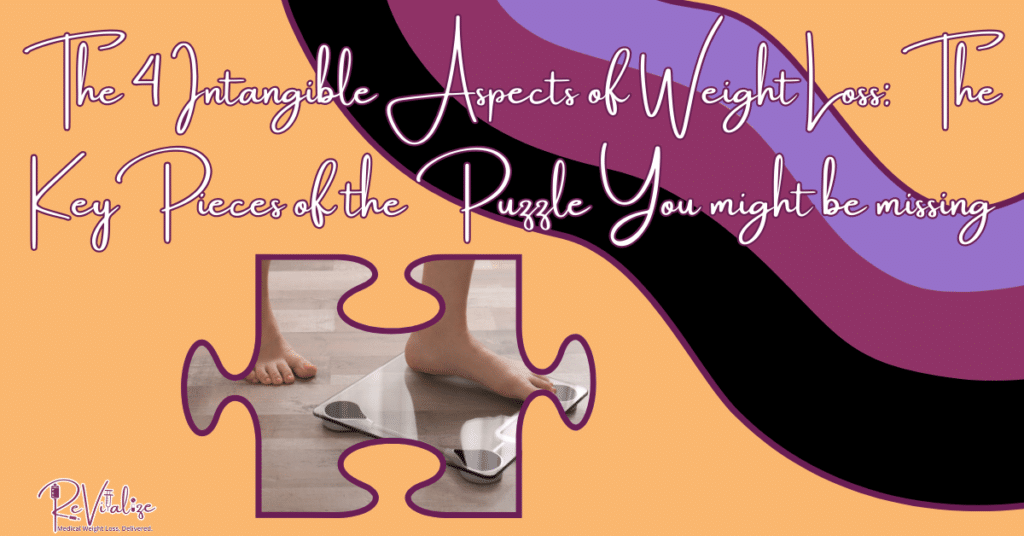
First, if you are burning more calories than you are eating, you are doing a good job setting yourself up to lose weight, but there are other factors at play behind the scenes, and I call these the intangible aspects of weight loss.
They aren’t obvious, and on the surface, they may seem insignificant, but I assure you, they are likely some of the driving forces behind why your weight isn’t changing in the direction you want it to.
Let’s dive deep into the heart of weight loss—and inspect and illuminate its intangible elements. These are the aspects that don’t necessarily come to mind when you are designing a game plan to lose weight, but play a crucial role in our weight management, and they include stress, sleep, hormones, genetics and more.
What are the unseen forces at play? How do stress levels shape our eating habits? Can the quality of our sleep tip the scales in or out of our favor? What role do our hormones play in this intricate dance of weight loss? And how much does our genetic blueprint influence our weight management journey?
As they say, knowledge is power, and knowing more about your body and how it works can only help you in your pursuit of a healthy weight.
Now, let me start out by telling you that I am a science minded person, and I do not believe in a lot of “woo woo” things, so what you are getting here isn’t about manifesting your desired weight. These may be the intangible aspects of weight loss, but they are the real deal!
What is your stress level?
Many people attribute their inability to lose weight to their already stressful life. You may have a list a mile long that keeps you from being able to either prioritize your health and weight loss, or aspects of it. For example, meal prep and meal planning may seem impossible if this sounds like you: between school, work and afterschool activities you have precisely 30 minutes (at 4:30 PM) to get everyone in the family fed. That is stressful for sure! Add to that the pressure of making healthy food, and forget about it!! It wouldn’t be surprising if cereal or fast food is your “solution”.
First, I am not here to shame you for choosing fast food! Second, what you eat is part of the well-known, well-hyped aspects of weight loss, and not what I’m talking about here.
I am talking about how stress itself affects your weight.
Stress in your body produces a hormone called cortisol. This is commonly referred to as “the stress hormone.” Cortisol is produced by a gland near your kidneys called the adrenal glands.

In addition to making you hungrier, (and hungrier for more fatty and calorie dense foods,) cortisol also signals the body to store fat! Increased cortisol levels are literally counteracting your hard work! To make matters worse, the fat storage tends to be more in the belly, around your organs, which is the most dangerous kind of fat!
This is called visceral fat, and it increases your risk of type 2 diabetes, heart disease, and strokes. Plus, it is often the weight around our mid-sections that is the most bothersome when we try to find clothing, or when we look in the mirror! We see those “love handles”, “muffin tops”, “saddlebags”, or whatever you call them.
But, I don’t want you to worry about that, because that would increase your cortisol!! (insert eye roll here because if you weren’t already concerned you wouldn’t be reading this). Instead, let’s focus on ways to decrease your stress.
One way to decrease stress is simply doing something you love to do. Scheduling a weekly walk with a friend, or having your nails done on a regular basis can be an easy way to recharge. Having something to look forward to is important, so try to keep something on the calendar for you to look forward to.
Another stress reducing technique could be taking one minute each hour to take some slow deep breaths. Literally one minute!! If you breathe in for 4 seconds and out for 5 you reverse the stress’s effect on your nervous system and tell your body you aren’t under threat. Yes, constant stress is perceived by your body as being under attack!
Poor sleep also contributes to weight gain!
The first way that insufficient sleep affects us is by increasing our cortisol levels. We’ve just discussed why cortisol is working against us when we are trying to lose weight, but to add insult to injury, getting poor sleep also throws off some of our other hormones too!
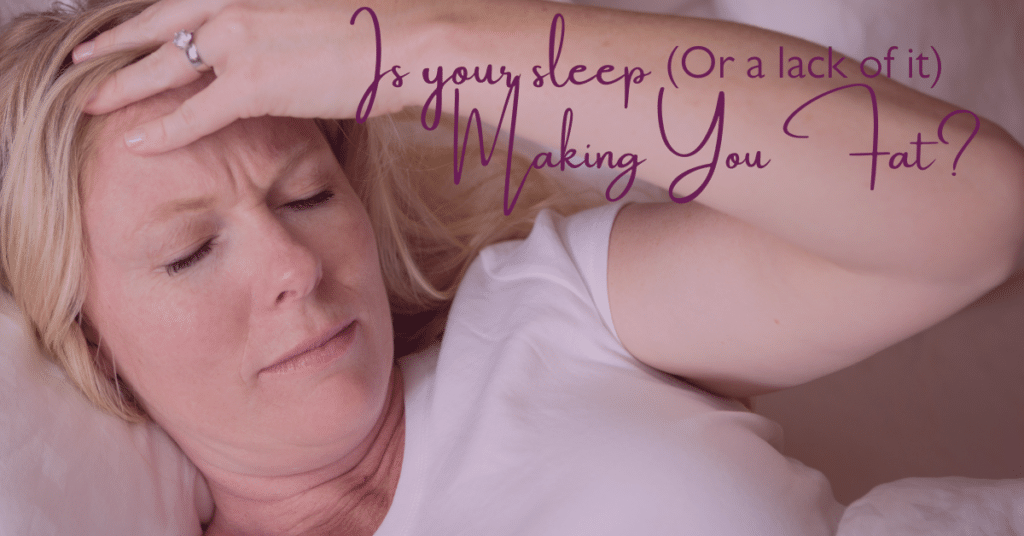
When you don’t get enough sleep some key hormones that regulate appetite are knocked out of balance. You’ll have less of the “I feel full” hormone (leptin) and more of the “I’m hungry” hormone (ghrelin, which I call the hunger gremlin). This is NOT a great combination for your waistline.
A lack of sleep causes your baseline metabolism to go down, which means that your body is not as efficient with processing the calories you bring in. (This is why weight loss isn’t as simple as burning more calories than you take in.) This is magnified if you work third shift or don’t fall asleep until very late at night, which affects your circadian rhythm.
As if that wasn’t bad enough, staying up late and not prioritizing sleep often leads to late night snacking. I don’t know about you, but by late night, all my daytime willpower is gone, and my late night snacks are never very nutritious. Snacking late at night even a few times a week can have a big impact on weight. Lastly, when you are running low on sleep, how can you be expected to find the energy to exercise? If you are not getting enough sleep, you likely are not being as active as you’d otherwise be if you were getting enough sleep.
Pop quiz: It is 9 PM, do you A) fit in a workout, or B) go to sleep?
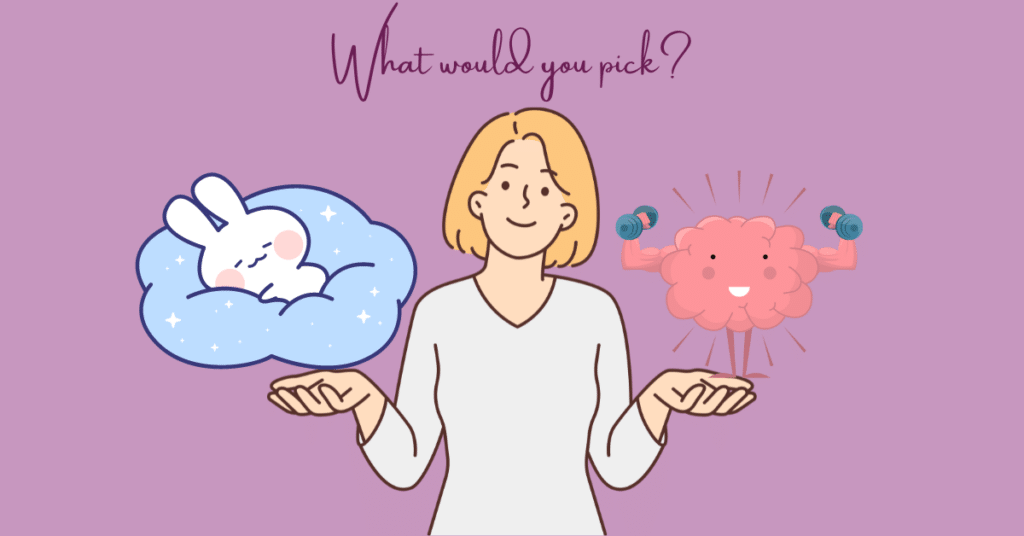
If you are trying to lose weight, you’d probably answer “A”, right? Or at least you’d expect that to be the right answer, but I want to encourage you to consider “B” instead.
First scenario: You decide to exercise, so you change your clothes, sweat for 45 minutes, and then shower and get ready for bed. Your body is energized from exercising, so falling asleep is difficult, and after everything you start to nod off around midnight. The next morning your alarm goes off at 6 AM and you struggle to get up after only 6 hours of sleep. Your cortisol levels are up, and your hunger hormones are screaming at you to eat calorie dense foods all day long!
Alternatively: You fall asleep at 9:30 PM feeling guilty that you didn’t make the best choices that day for your health, but the next morning you wake up at 5:30 AM after having gotten 8 full hours of sleep. You are rested, energized, and your cortisol levels and your hunger hormones are in check.
You have just set the stage to make thoughtful, rational choices for THIS day.
Personally, I’d rather prioritize sleep, which in turn helps decrease cortisol, which helps me not hold on to extra fat in my midsection and helps control my hunger cues.
Do you need help with your sleep? This guide may help.
Another of the intangible aspects of weight loss—hormones, and how they affect your weight:
We discussed some of the key hormones involved in regulating our weight- cortisol (the stress hormone), leptin (the “I’m full” hormone), and ghrelin (the hunger hormone), but there are other hormones playing a part too!
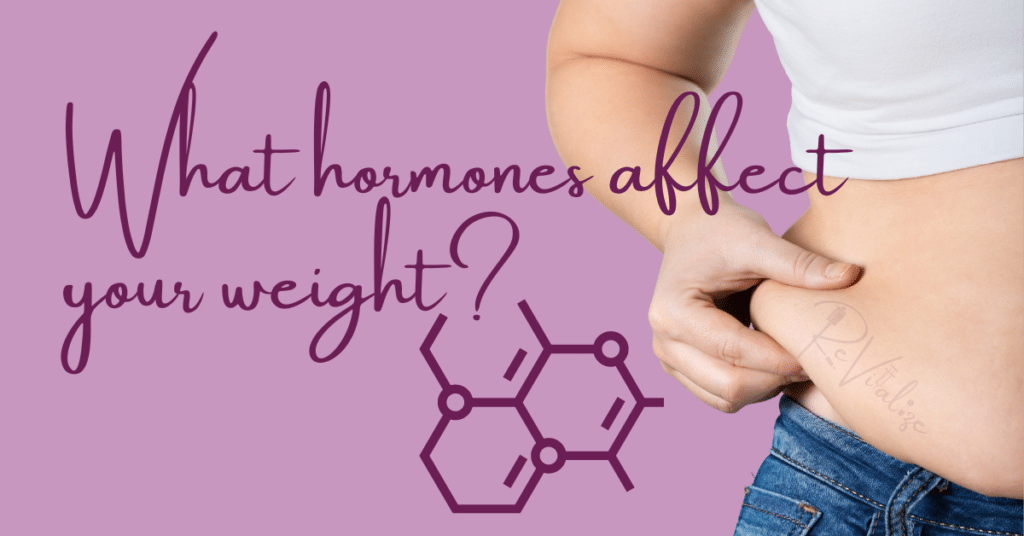
Insulin is a hormone that helps your body turn glucose into fuel for your cells. It helps regulate your blood sugar by helping the glucose move out of your blood and into your cells. Sometimes your body becomes resistant to the effects of insulin and your body increases insulin production, but when there is more sugar and insulin circulating, your body stores that excess sugar as fat.
Estrogen is a hormone that, when out of balance, can make it difficult to lose weight. Estrogen is produced in multiple places in the body, including in fat cells. So, if you are already overweight, estrogen is likely higher in your body, so it is a vicious cycle! Diet and exercise can help balance estrogen levels.
Neuropeptide Y (NPY) is an infrequently discussed hormone that increases hunger, particularly for high carbohydrate foods, tells you to eat more food, more frequently and it encourages fat cell formation.
Glucagon-Like Peptide -1 (GLP-1) is a hormone that is produced in the gut and signals fullness, decreases hunger, slows gut emptying, and regulates blood sugar levels. This is the hormone targeted by the novel weight loss medications semaglutide (Ozempic or Wegovy), and tirzepatide (Mounjaro or Zepbound). You can learn more about these medications here.
Peptide YY and cholecystokinin are also hormones released by the gut that signal fullness. Imbalances in these hormones can lead to overeating, and contribute to obesity. Eating a high fiber, high protein diet can help regulate these hormones.
There are many hormones that contribute to weight regulation, and many of them balance off of one another. In general, because of feedback loops, improving some of your hormone imbalances (through diet changes, exercise, reducing inflammation, reducing stress, or through the use of medications) can have a positive effect on other hormones too.
Do genetics play a role in weight?
If you struggle with your weight, I wouldn’t be surprised if you told me that many of your family members do as well. But is this nature or nurture at play? Many people would argue that if you are living in the same house, nurture is playing a larger role because you are exposed to the same foods and likely share a similar lifestyle.
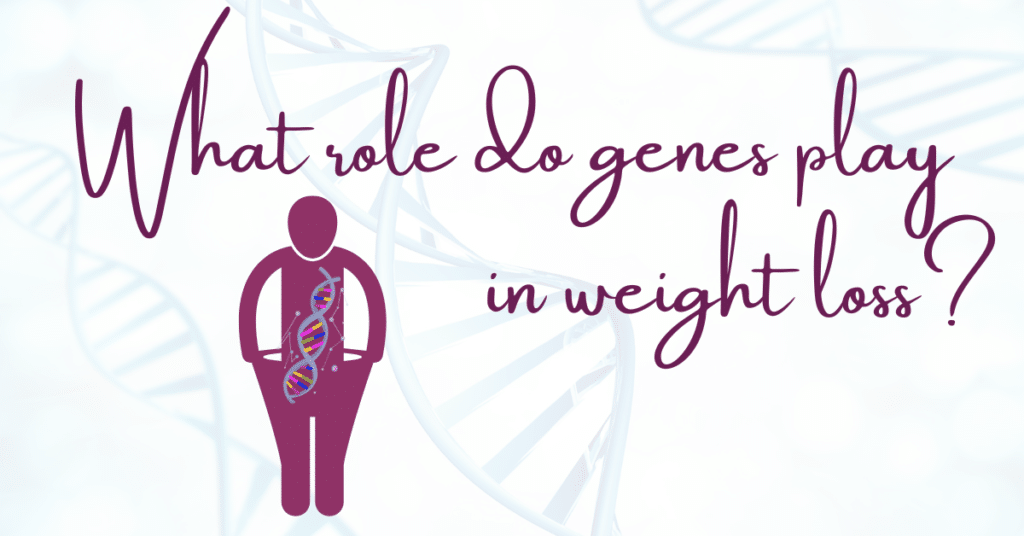
To understand the true effect that our genetics play on our weight we can look to twin studies. These studies look at twins who are genetically identical, but were raised in different families. These studies suggest that genetics play a relatively significant role in our weight, possibly accounting for about 60-70% of what determines our weight.
Studies have shown that there are many genes that affect our weight including genes that help shape our eating behaviors and hunger. Sure, we can change the way we eat (ie dieting), but we can’t change that underlying code that makes us want to eat large meals quickly, or makes some of us “grazers”.
Honestly, the fact that genetics plays a role in our weight isn’t all that helpful to those of us trying to lose weight, because we can’t change our genes, but I do think it is helpful to note that while we can aim for a healthy weight, we should be aware that we may not be able to achieve a certain look.
Let’s compare this to a haircut—even if you cut your hair the exact same way as your friend, it could look entirely different based on hair texture (genetics). Similarly, you may have the same height and weight as another person, but have an entirely different body shape, but that’s OK!!
Embracing Your Journey
Embracing your unique journey is essential. We can’t all expect to fit into the same mold, and why would we want to? Our diversity is what makes us beautiful and interesting. Just like our hair, our weight loss journey is deeply personal and influenced by so many factors.

So, instead of striving for a specific look or comparing ourselves to others, let’s focus on what we can control. Let’s work on creating a balanced life, where we manage stress, prioritize sleep, understand our hormonal influences, and accept our genetic blueprint. It’s about finding what works for you, what makes you feel good, and what is sustainable in the long run.
Remember, weight loss is not a race, and there’s no finish line where everything suddenly becomes perfect. It’s an ongoing process of learning and adapting. The key is to be patient, be kind to yourself, and celebrate every victory, no matter how small. Whether it’s choosing a salad over fast food, getting an extra hour of sleep, or simply taking a moment to breathe and de-stress, each choice is a step in the right direction.
The intangible aspects of weight loss may not be front and center when you are on your weight loss journey, but being aware of them, and how you can improve or modify them are important, especially when your path gets challenging.
As you continue on your path, keep in mind that your worth is not measured by the scale or the size of your jeans. Your value comes from the love you give, the lives you touch, and the joy you find in the moments that make up your day. So smile, laugh, and live fully – your body and your heart will thank you for it.
And if you ever need a helping hand or a listening ear, remember that I’m here to support you on your journey to wellness. Together, we can navigate the intangible aspects of weight loss and build a healthier, happier life.

